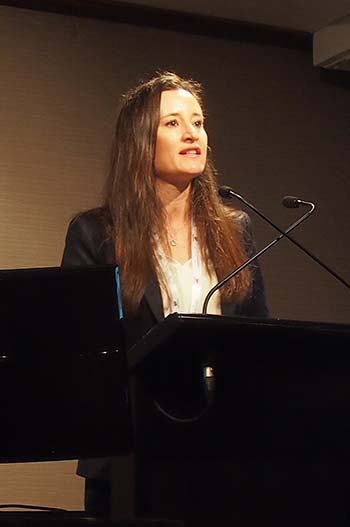Research
Dr Michelle Locke has a strong research background which stemmed from participation in several Summer Studentship research projects as an undergraduate.
During her advanced training in Plastic Surgery, she spent two years in the laboratory to undertake a Doctorate of Medicine (MD) degree at the School of Biological Sciences at the University of Auckland. Her thesis work involved benchtop scientific experiments, culminating in the submission of her thesis in fulfilment of the degree requirements.
This fueled her love of research, which continues to this day.
Currently Dr Locke works at the University of Auckland part time and is involved in ongoing research projects in the Dunbar laboratory at the School of Biological Sciences, as well as collaborations with other departments.
During her clinical time, she is the principle investigator of many other research projects, often focused on improving clinical outcomes for her patients.

Current Research
Dr Locke's current research is undertaken in conjunction with researchers in the Dunbar laboratory at the University of Auckland School of Biological Sciences. Thanks to funding from The Sir William Manchester Trust, the Stevenson Foundation and other generous donors, she has been involved with Auckland based research projects since 2013.
One such collaborative project is working towards developing full thickness engineered skin. The aims of the project include the investigation of use of human adipose-derived stem cells (ASC) as feeder cells for keratinocyte cultures to recreate the top layer of skin (epidermis), as well as investigating novel culture techniques and various dermal substitutes to facilitate the growth of large amounts of full thickness skin growth from small skin samples. This work will assist the development of full thickness skin for use in large burn wounds, among other things.
Another area of interest relates to the Dunbar lab’s recent discovery of mesenchymal (adult) stem cells in the dermis of skin, known as dermal progenitor cells (DPC). These adult stem cells may be essential for normal healing of skin, and if they are damaged or destroyed, healing may be impaired.
They may also be responsible for conditions where the skin grows back abnormally after injury. Other research uses new techniques to study these stem cells in the conditions where healing is abnormal. These include keloid scar formation (where the scar continues to grow beyond the margins of the wound) and skin exposed to radiation therapy, where healing can be impaired. The research group hope to discover new routes for therapy of these conditions, which currently lack effective treatment and can be a significant challenges to Plastic Surgeons.
Dr Locke is also excited to be a member of a collaborative research team based in the Photon Factory at the University of Auckland to aid in the development of a handheld device to diagnose melanoma and other skin cancers. The team gained a significant grant from the Smart Ideas project round of MBIE to progress this project over three years. Dr Locke’s role will be to bring the new technology to Middlemore hospital’s See and Treat skin cancer clinic. You can read more about this research in the NZ Herald article below.
New Zealand Herald, 25 September 2017.
"Kiwi scientists to make Star Trek gadget a reality"

Doctorate of Medicine (MD) Degree
"Mesenchymal Adult Stem Cells: Their Potential in Wound Healing and Plastic Surgery"
During this two year period of full time research, Dr Locke was instrumental in setting up a human adipose-derived stem cell (ASC) research laboratory at the School of Biological Sciences at the University of Auckland. She developed protocols for the processing, isolation and differentiation of ASC to be used at the University of Auckland. As well as this, cell surface analysis was undertaken using flow cytometry, novel isolation technique for ASC using fluorescence activated cell sorting.
Also, a gene transfer processes for ASC using adeno-associated viruses (AAV) were optimized. Technical skills gained during the period include human tissue processing and cell culture techniques, flow cytometry and analysis of gene expression by RTqPCR, and well as ASC transduction with AAV for gene transfer. Non-technical components include the training and supervision of students in the lab, as well as teaching the ASC techniques to other laboratory staff.